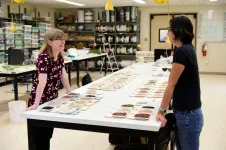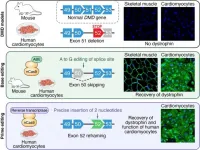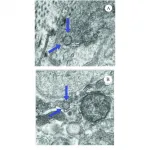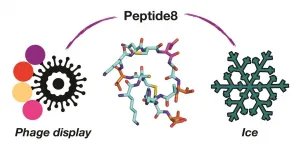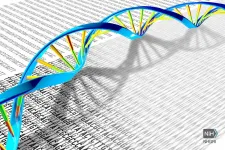(Press-News.org) SASKATOON - Tepary beans--a high protein legume common to the southwest United States and Mexico--may hold the key to adapting bean crops for the increasingly harsh conditions brought on by a changing climate, according to research led by University of Saskatchewan (USask) and Michigan State University.
In a study just published in Nature Communications, the researchers found that as the mercury rises to 27oC at night--a temperature devastating for current bean crops--specific genes sensitive to heat stress in the tepary bean get activated, protecting the plant.
"We are interested in tepary beans because they are very stress tolerant, unlike their cousin the common bean," said Dr. Kirstin Bett (PhD), professor of plant breeding and genetics at USask and one of the senior authors of the study.
By 2050, the major regions growing common beans (Phaseolus vulgaris L.)--the most important legume protein source for human consumption--may be unsuitable and the overall nutritional quality of the crop will likely be reduced.
"Tepary beans are an under-appreciated protein crop that are ideal for production in marginal environments due to their inherent tolerance of temperature stresses," said Bett.
The team sequenced the genome of the tepary bean (Phaseolus acutifolis A. Gray) to study how the legume adapts more effectively to fluctuating temperatures than its common bean cousin, and to combine traits of the two species into a more sustainable crop variety.
Having been part of Indigenous diets in regions such as northern Mexico, the southwest United States and Africa for centuries, the tepary bean has been valued for its ability to survive in arid environments. While the tepary bean can handle heat and dry, the researchers found it is less capable of surviving the threat of disease.
"Tepary beans have fewer disease resistance genes, perhaps because they are typically grown in arid climates where disease pressure has been less than in the wetter regions where common beans have been grown," said Bett.
"My group was responsible for the wild genome assembly and the comparative mapping work that shows the genome-level relationships between wild and cultivated tepary bean and common bean," said Bett. "This will help us better understand how to transfer traits between the two species. We are trying to increase the stress tolerance of the common bean by crossing with tepary bean and selecting for lines that are more tolerant to cold and drought."
In the future, researchers hope to be able to leverage this genetic information to improve the vitality of bean crops that must thrive in extreme temperatures or changing environments.
"We are continuing to try to develop tepary bean varieties that will grow here in Saskatchewan and in other dry areas of the world," Bett said.
INFORMATION:
The team included researchers from USask's College of Agriculture and Bioresources, USask's Global Institute for Food Security, Michigan State University, North Dakota State University, Canada's National Research Council (NRC) located on the USask campus, USDA Agricultural Research Service - Tropical Agriculture Research Station, Alabama-based HudsonAlpha Institute for Biotechnology, and the U.S. Department of Energy Joint Genome Institute.
The Saskatoon contingent of the research team included USask bioinformatics specialists Chushin Koh and Larissa Ramsay, and Sateesh Kagale, a research scientist at NRC.
The research was supported locally by Saskatchewan Pulse Growers, and internationally by the Michigan State University Plant Resilience Institute, the United States Agency for International Development and the United States Department of Agriculture.
The investigators used machine learning to predict which patients might get worse and not respond positively to being turned onto their front in intensive care units (ICUs) - a technique known as proning that is commonly used in this setting to improve oxygenation of the lungs.
While the AI model was used on a retrospective cohort of patient data collected during the pandemic's first wave, the study demonstrates the ability of AI methods to predict patient outcomes using routine clinical information used by ICU medics.
The researchers say the approach, where each patient's ...
Alexandria, Va., USA -- Carbon dioxide (CO2) is a byproduct of human metabolism and exists in high levels in exhaled air, and is therefore often used as a proxy for indoor air quality. The study "Ventilation Assessment by Carbon Dioxide Levels in Dental Treatment Rooms," published in the Journal of Dental Research (JDR), evaluated CO2 levels in dental operatories and determined the accuracy of using CO2 levels to assess ventilation rate in dental clinics.
Researchers at the University of Rochester, Eastman Institute for Oral Health, N.Y., USA, conducted CO2 concentration and ventilation rate assessments in 10 closed dental treatment rooms with varying ...
Roads can be barriers to wildlife of all sorts, and scientists have studied road impacts on animals ranging from Florida panthers and grizzly bears to box turtles, mice, rattlesnakes and salamanders.
But much less is known about the impact of roads on pollinating insects such as bees and to what extent these structures disrupt insect pollination, which is essential to reproduction in many plant species.
In a paper published online May 10 in the Journal of Applied Ecology, University of Michigan researchers describe how they used fluorescent pigment as an analog for pollen. They applied the luminous pigment to ...
(Boston)--Chronic Obstructive Pulmonary Disease (COPD) is a disease caused by cigarette smoking that reduces lung function and causes difficulty breathing. It is the third leading cause of death worldwide. Current treatments for COPD only affect symptoms, not progression. Identifying who is going to get COPD before they get it is key to figuring out how to intercept the disease at an early stage.
Researchers from Boston University School of Medicine (BUSM) have identified a panel of genes that are active in smokers and ex-smokers who experience faster loss of lung function over time. They believe these genes could be useful to predict which people are most at risk for smoking-related ...
(Boston)--Knee osteoarthritis (OA) is a global health problem. Almost half the adults over the age of 75 have some form of knee OA--one of the leading causes of disability worldwide. Because there is no cure for knee OA, current treatment relies on accurately identifying and staging the disease.
Using an Artificial Intelligence-based approach known as deep learning, researchers from Boston University School of Medicine (BUSM) have now identified a new measure to determine the severity of knee osteoarthritis--named "subchondral bone length" (SBL).
There are only a handful of proven imaging markers of knee OA. Currently, medical imaging tools such as Magnetic ...
DALLAS - April 30, 2021 - UT Southwestern scientists successfully employed a new type of gene therapy to treat mice with Duchenne muscular dystrophy (DMD), uniquely utilizing CRISPR-Cas9-based tools to restore a large section of the dystrophin protein that is missing in many DMD patients. The approach, described online today in the journal Science Advances, could lead to a treatment for DMD and inform the treatment of other inherited diseases.
"Thousands of different mutations causing Duchenne have been identified, but they tend to cluster into certain parts of the dystrophin gene," says study leader END ...
University of Miami Miller School of Medicine researchers are the first to demonstrate that COVID-19 can be present in the penis tissue long after men recover from the virus.
The widespread blood vessel dysfunction, or endothelial dysfunction, that results from the COVID-19 infection could then contribute to erectile dysfunction, or ED, according to the study recently published in the World Journal of Men's Health. Endothelial dysfunction is a condition in which the lining of the small blood vessels fails to perform all of its functions normally. As a result, the tissues ...
Researchers have mapped out the changes in metabolism that occur after a heart attack, publishing their findings today in the open-access eLife journal.
Their study in mice reveals certain genes and metabolic processes that could aid or hinder recovery, and might be good targets for treatments to prevent damage after a heart attack.
"Although some studies have looked at how changes in individual body tissues underlie mechanisms of disease, the crosstalk between different tissues and their dysregulation has not been examined in heart attacks or other cardiovascular-related complications," explains first author Muhammad Arif, a PhD student at KTH Royal ...
Controlling, and mitigating the effects of ice growth is crucial to protect infrastructure, help preserve frozen cells and to enhance texture of frozen foods. An international collaboration of Warwick Scientists working with researchers from Switzerland have used a phage display platform to discover new, small, peptides which function like larger antifreeze proteins. This presents a route to new, easier to synthesise, cryoprotectants.Caption: Using viruses (phage display) to identify the one molecule in a billion (peptide8) that controls the formation of ice. Credit: University of Warwick
Ice binding proteins, which includes antifreeze proteins, are produced by a large range of species from fish, ...
An investigational gene therapy can safely restore the immune systems of infants and children who have a rare, life-threatening inherited immunodeficiency disorder, according to research supported in part by the National Institutes of Health. The researchers found that 48 of 50 children who received the gene therapy retained their replenished immune system function two to three years later and did not require additional treatments for their condition, known as severe combined immunodeficiency due to adenosine deaminase deficiency, or ADA-SCID. The findings were published today in the New England Journal of Medicine.
ADA-SCID, ...
